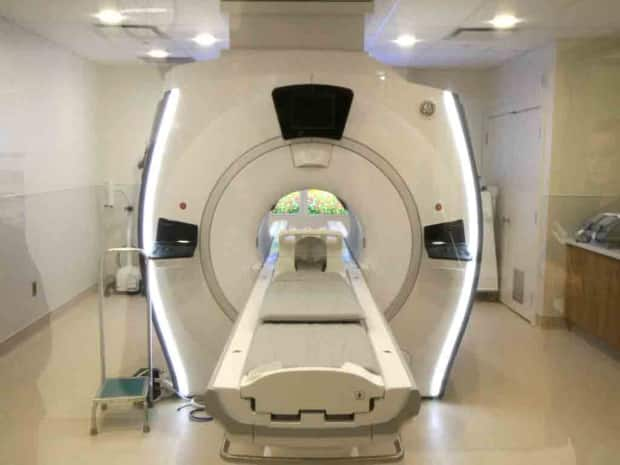Breast screening backlog concerning, head radiologist says

The head of the breast imaging section of The Ottawa Hospital (TOH) says the department has a backlog of about 20,000 patients who haven't received routine screening during the pandemic — and is worried about seeing more advanced cancers in patients who skip appointments.
Dr. Jean Seely said the department has rebuilt some of the capacity it lost early in the pandemic — but some people have not shown up for appointments.
"They're so focused on COVID that they're not actually coming in," Seely said.
She said the estimated backlog is based on the normal number of screenings performed in a year.
Some patients and even family doctors weren't aware that mammography was resuming at the hospital, she said. The hospital is sending invitations to remind people to book and follow up on appointments.
However, some patients are showing signs they should have been screened earlier, she said.
"More women are coming in with lumps that are palpable," Seely said. "The more advanced cancers are when you're diagnosed, the more likely they're going to need more surgery, more expensive chemotherapy ... and more time off work. It's really critical to our health-care system to do this kind of early diagnosis."
Seely said women between ages 50 and 74 who qualify for the Ontario Breast Screening Program will be getting appointment reminders.
"Cancer doesn't stop with COVID."
Expanding capacity
The Champlain region, an area that covers the nation's capital and stretches across rural Ottawa under the Champlain Local Health Integration Network, reported a major drop in the number of MRIs and CT scans performed in April 2020 compared to February of that year — each fell by about 5,000 procedures.
Dr. Richard Aviv, head of the medical imaging department at TOH, said the backlog was at its worst in November in the region, but both MRI and CT capacity was expanded and the health system is catching up.
"We're not quite out of the woods yet but we're very, very close." Aviv said. "Our CT and MRI wait times have both reduced to lower than pre-COVID levels."

Last June, there were about 22,000 patients in the backlog for MRIs in the region, which reduced to about 12,000 by mid-February, Aviv said.
There were about 28,000 CT scans in the backlog in June and that number has been reduced to about 25,000 this past month, Aviv added. About 14,000 of those patients waiting don't have appointments booked, he said.
However, he said, the hospital's efforts to have more scanners working 24/7 didn't help increase capacity, because patients weren't taking those appointments. Those overnight hours have since been reduced, he said.
"Patients wouldn't show up. I'd really like to have a model where we could do our well, young outpatients overnight," he said, adding that this would allow health professionals to focus on more severely ill patients during the day.
Aviv said the imaging department is building a more effective patient booking system.

